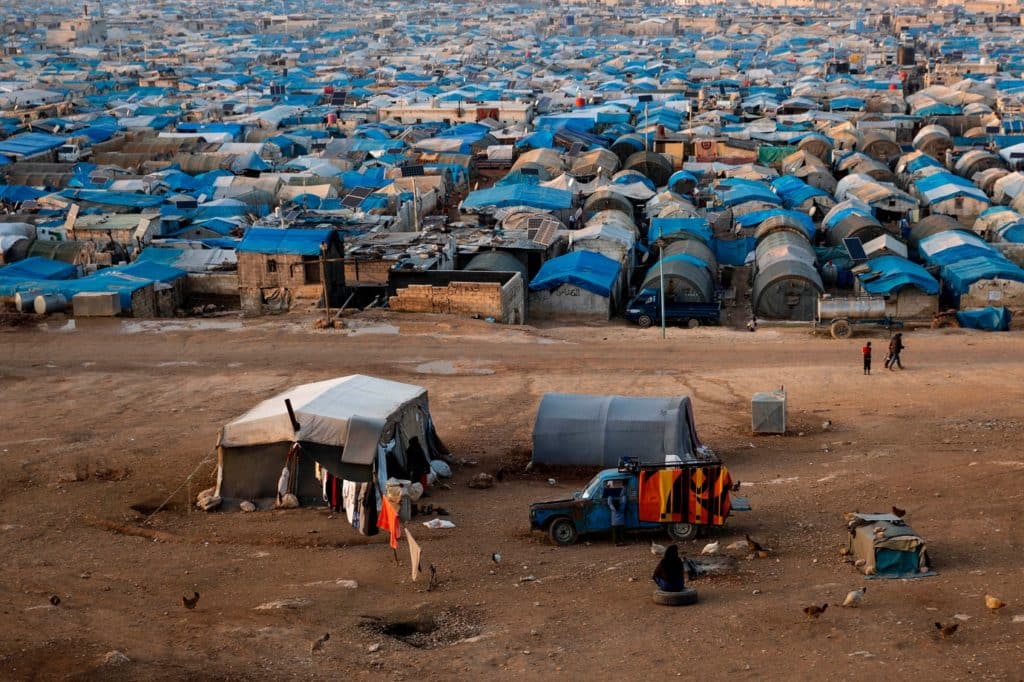The Australian government is preparing a mission to repatriate about 20 Australian women and 40 children from camps in northeast Syria, according to media reports.
These women and children are the wives and children of dead or jailed Islamic State fighters and have been languishing in Syrian camps for more than three years since the fall of the Islamic State “caliphate”. Many of the women insist they were taken to Syria against their will by their husbands who are no longer alive.
It has been reported that the women have agreed to be subject to government control orders should they be returned to Australia.
The Morrison government undertook a mission to repatriate eight Australian orphans from the Syrian camps in 2019 but did not rescue any more Australians in the subsequent years, citing security concerns and risk.
In July, it was confirmed Australian teenager Yusuf Zahab had died in detention in northeast Syria.
International aid and human rights organisations have largely welcomed the reports of the repatriation mission to return children and their mothers to Australia, from the al-Hawl and Roj detention camps.
In a joint statement, Save the Children Australia, the Australian Council for International Development, UNICEF Australia, Plan International, CARE Australia, Amnesty International, Islamic Relief Australia and the Human Rights Law Centre said it was time to provide a path forward. They said reports of Yusuf Zahab’s death “provided heartbreaking proof” of the critical need for Australia to uphold its obligations under international law.
“Australians would be shocked to see the conditions Australian children have been languishing in for the past three years,” Mat Tinkler, CEO of Save the Children Australia, said.
“They are living in uninsulated tents, exposed to the freezing cold winters and scorching hot summers, with inadequate access to nourishing food, and suffering from untreated wounds and poor mental health. We eagerly await the news of the safe arrival of these children on home soil, where their families are ready to wrap love and support around them.
“To the extent that any of the women have been exposed to radicalisation, or should there be evidence that crimes have been committed, Australia has a very robust judicial and national security architecture that can respond to and mitigate these risks.
“All of the women have offered to cooperate fully with law enforcement authorities and be subject to onerous control orders upon their arrival here.”
Some other countries have repatriated their citizens since 2019, with an estimated 1,400 children repatriated from the al-Hawl and Roj camps to their home countries, including the US, France, Germany, Denmark and Sweden.
Susanne Legena, CEO of Plan International Australia, said the conditions Australian children and their mothers have been subjected to are “appalling, dangerous and inhumane”, and called on the government to provide women and girls with survivor-centred trauma care should they return to Australia.
“We agree that repatriation is the right thing to do,” Legena said. “However, social reintegration and addressing severe trauma are complex processes, and it is critical that upon their return, the Australian Government has in place for these children — and their mothers — high quality, accessible and integrated support and reintegration services, in line with international best practices, available for as long into the future for as they are needed.”
“We also call on the government to recognise that many girls and young women were trafficked from Australia and forcibly married in Syria and to provide them with specialised, survivor-centred support on their return.”
Australian Council for International Development CEO Marc Purcell said Australia was obligated to meet its international obligations and return nationals to Australia.
“This is a welcome decision by the Australian Government. Repatriation is in the children’s best interest and Australia is legally obliged to repatriate its nationals,” Purcell said.
“These children and their mothers should be brought home as a matter of urgency.”



